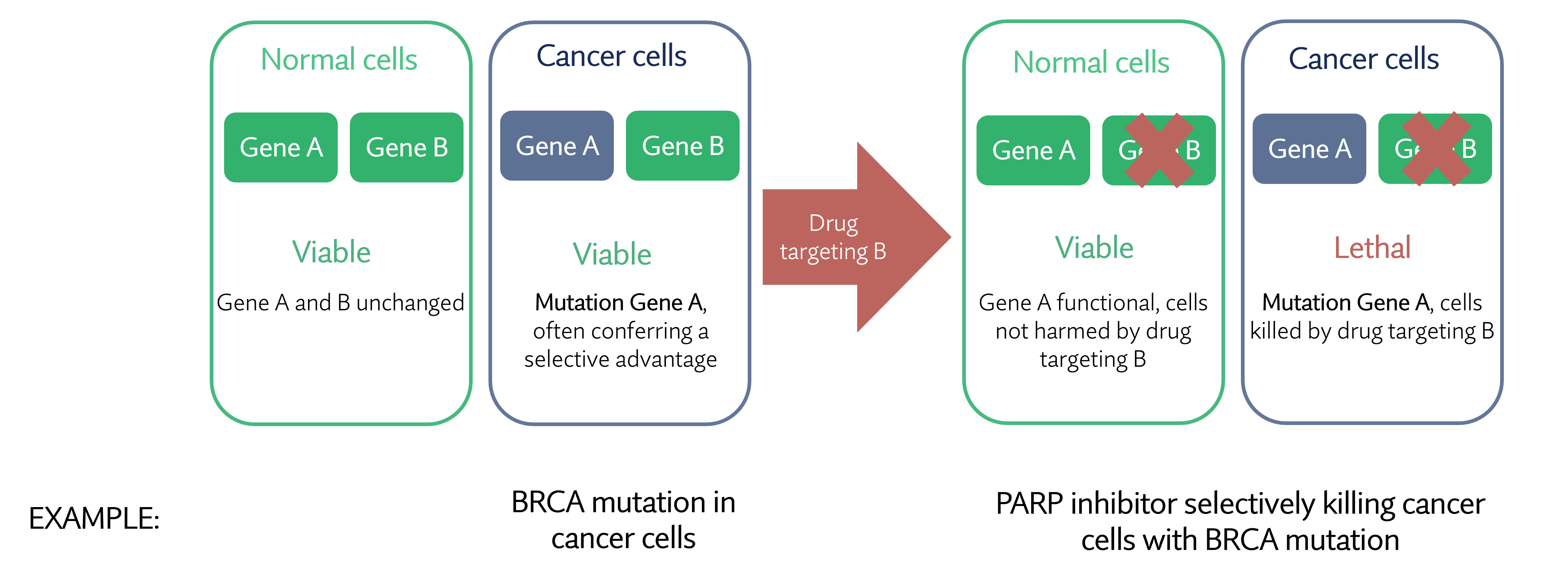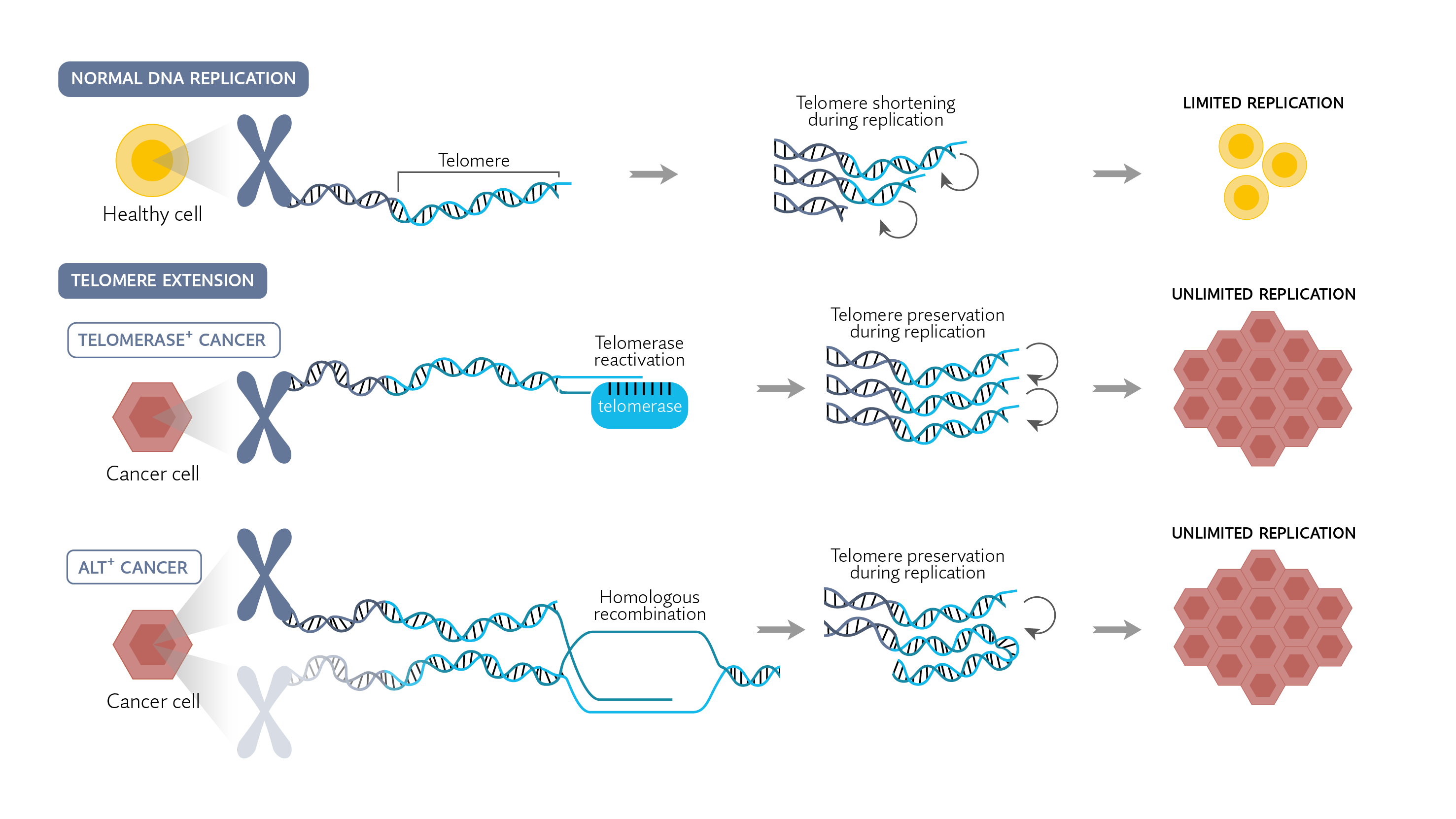Tessellate BIO’s vision is to redefine synthetic lethality, turning cancer patients into cancer survivors
Tessellate BIO’s vision is to redefine synthetic lethality, turning cancer patients into cancer survivors


About Synthetic Lethality
Synthetic lethality describes a situation in which mutations in two genes together result in cell death, but a mutation in either gene alone does not, therefore, interfering with the function of the normal partner gene may cause cancer cells to die.
While synthetic lethality interactions had been typically implemented based on specific gene mutations, recent findings demonstrate the extension of the concept to disease cellular mechanisms or phenotypes such as ALT.
About ALT cancers
Alternative lengthening of telomeres (ALT) is a mechanism that some cancer cells use to maintain the integrity of their telomeres during cell division, which is essential for their unlimited replicative potential.
Several molecular markers can be used to identify ALT cancers. A broadly recognized, specific biomarker of ALT activity is the presence of c-circles – single-stranded, self-annealed telomeric DNA fragments.
Precision oncology approach
Tessellate BIO’s approach is to identify novel targets and treat cancers in a selective manner, using a combination of dedicated diagnostic assays and proprietary targets.
Publications
Lu R et al. (2019) The FANCM-BLM-TOP3A-RMI complex suppresses alternative lengthening of telomeres (ALT).
Nat Commun. May 28;10(1):2252. To the article
Silva B et al. (2019) FANCM limits ALT activity by restricting telomeric replication stress induced by deregulated BLM and R-loops.
Nat Commun. May 28;10(1):2253. To the article
Henson JD et al. (2016) The C-Circle Assay for alternative-lengthening-of-telomeres activity.
Methods. Feb 1;114:74-84. To the article
Would you like to know more?
Privacy Policy – Terms & Conditions – Cookie policy


